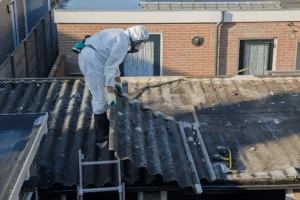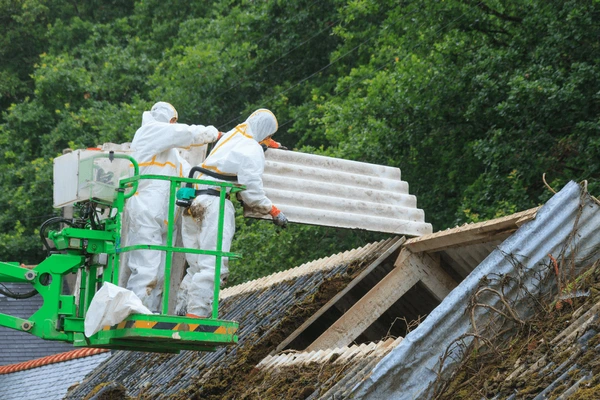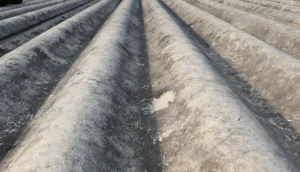Looking for reliable Asbestos Removal Service in India? Learn how to identify certified asbestos removal experts, key safety practices, and what makes a professional service stand out.
Asbestos was once considered a miracle material — heat-resistant, durable, and widely used in construction. But over time, it became evident that exposure to asbestos fibers could lead to serious health conditions such as asbestosis, lung cancer, and mesothelioma.
That’s why, when dealing with old buildings or renovation projects, finding certified asbestos removal experts isn’t just important — it’s essential for safety.
Whether it’s a home, factory, or public facility, professional asbestos management ensures compliance with environmental regulations and prevents harmful exposure.
Why Certification Matters in Asbestos Removal
Unlike general cleaning or maintenance work, asbestos removal involves specialized training, protective gear, and legal compliance. Certification serves as proof that professionals have undergone rigorous testing and meet government safety standards.
Here’s why hiring certified experts is non-negotiable:
-
Health and Safety Compliance: Certified experts follow strict guidelines for containment, removal, and disposal of asbestos.
-
Proper Equipment and Technology: Licensed teams use high-efficiency particulate air (HEPA) vacuums, sealed containment units, and protective suits.
-
Legal Assurance: Certified asbestos handlers are trained under government-approved protocols, reducing liability risks.
-
Environmental Responsibility: Certified professionals ensure asbestos waste is transported and disposed of at approved facilities.
When it comes to choosing a service provider, certification ensures both credibility and safety, offering peace of mind to property owners.
Steps to Identify Certified Asbestos Removal Experts
Finding qualified professionals for asbestos management in India can seem daunting. However, a systematic approach can simplify the process.
1. Research the Company’s Background
Start with an online search for reputed Asbestos Removal Service in India and look for companies with verifiable credentials. Visit their official website and check for:
-
Company registration and license details
-
Past client testimonials or case studies
-
Years of experience in asbestos management
2. Verify Certification and Licensing
Reputable asbestos removal experts hold certifications issued by recognized authorities. Before hiring, ask for copies of:
-
Occupational Safety and Health certifications
-
Government-issued licenses for hazardous waste management
-
Training certificates for asbestos handling
3. Ask About Their Removal Procedures
A certified expert should be able to clearly explain:
-
How they identify asbestos-containing materials (ACMs)
-
Containment and removal methods used
-
Air monitoring and clearance testing procedures
-
Waste disposal plans
If they hesitate or provide vague answers, it’s a sign they might lack proper training.
4. Assess Safety Protocols
Certified removal teams follow a series of safety steps before, during, and after removal. These include:
-
Isolating the contaminated area
-
Using negative air pressure systems
-
Employing wet removal methods to minimize dust
-
Conducting final air quality assessments
This ensures that no asbestos fibers are released back into the environment.
5. Request a Written Estimate
A detailed estimate should include:
-
The scope of work and removal methods
-
Equipment to be used
-
Waste transportation and disposal details
-
Timelines and total cost
A transparent quotation reflects a professional approach and builds trust.
Signs of an Unqualified or Unsafe Asbestos Removal Service
Unfortunately, some operators claim to handle asbestos without proper training or permits. To avoid risk, watch out for these red flags:
-
They refuse to show certification or licenses
-
No mention of safety gear or containment systems
-
Offering suspiciously low prices compared to market rates
-
Lack of written documentation or removal plan
-
Improper disposal methods, such as open dumping
Hiring such services can lead to health hazards, legal issues, and environmental violations. Always prioritize verified professionals over cheap alternatives.

Understanding the Asbestos Removal Process
A standard asbestos removal process involves several stages to ensure safety:
-
Initial Inspection: Experts conduct surveys using testing kits or laboratory analysis to detect asbestos presence.
-
Risk Assessment: They evaluate the level of contamination and the best method for removal.
-
Containment Setup: The affected area is sealed off to prevent fiber spread.
-
Safe Removal: Specialized tools and wet removal methods are used to minimize dust.
-
Decontamination: Equipment and surfaces are thoroughly cleaned.
-
Air Monitoring: Final testing confirms the air is safe to breathe.
-
Waste Disposal: Asbestos waste is packed in labeled containers and sent to certified disposal sites.
These steps ensure complete removal without secondary contamination.
How to Ensure Long-Term Safety After Asbestos Removal
Once asbestos has been removed, maintaining a safe environment is equally important. Here’s how you can ensure lasting safety:
-
Schedule regular inspections to detect any residual fibers.
-
Keep records of the removal work and disposal certificates.
-
Avoid disturbing older structures without testing materials first.
-
Hire only certified maintenance teams for any renovation or repair work.
Even after removal, awareness and precaution play a key role in sustaining a healthy space.
Common Myths About Asbestos Removal
It’s easy to fall for misinformation about asbestos management. Let’s clear up some common myths:
-
❌ Myth 1: You can remove asbestos yourself with a mask and gloves.
✔️ Fact: DIY removal can spread fibers, causing health hazards. -
❌ Myth 2: Once asbestos is removed, there’s no need for air testing.
✔️ Fact: Post-removal air monitoring ensures the environment is truly safe. -
❌ Myth 3: All asbestos-containing materials are dangerous.
✔️ Fact: Some are safe if undisturbed and encapsulated by professionals.
Understanding these facts helps you make informed decisions when hiring professionals.
Role of Professional Expertise in Asbestos Management
Certified professionals don’t just remove asbestos — they manage risk, ensure compliance, and provide complete documentation for your peace of mind.
In India, a few organizations have established themselves as trusted names in asbestos management and hazardous waste disposal, with a focus on sustainable methods. One such environmentally responsible provider is Greenship Services, known for adhering to global safety and environmental standards in asbestos removal.
Their expertise ensures that residential, commercial, and industrial projects remain compliant and safe from asbestos-related risks.
FAQs
1. How do I know if my building contains asbestos?
If your building was constructed before the 1990s, it’s likely to contain asbestos in insulation, roofing, or flooring. Only a certified expert can confirm this through laboratory testing.
2. Is asbestos removal mandatory in India?
While not all asbestos needs to be removed immediately, it must be handled safely under environmental laws. Removal becomes essential if materials are damaged or deteriorating.
3. How long does asbestos removal take?
The duration depends on the size and complexity of the project. Small residential jobs may take 1–2 days, while larger industrial projects can take several weeks.
4. Can asbestos be safely encapsulated instead of removed?
Yes, in certain cases, asbestos can be sealed with specialized coatings to prevent fiber release. However, only professionals can determine if encapsulation is safe.
5. What happens to asbestos waste after removal?
Certified services transport it to government-approved hazardous waste disposal facilities following strict packaging and labeling norms.
Keeping Your Environment Safe for the Future
Protecting your home or workplace from asbestos is more than a one-time job — it’s an ongoing commitment to safety and awareness. By choosing certified experts, you not only safeguard your health but also contribute to a cleaner and more responsible environment.
When in doubt, always consult professionals who are trained, certified, and environmentally conscious. In the long run, this choice ensures your safety, legal compliance, and peace of mind — something every responsible property owner deserves.


